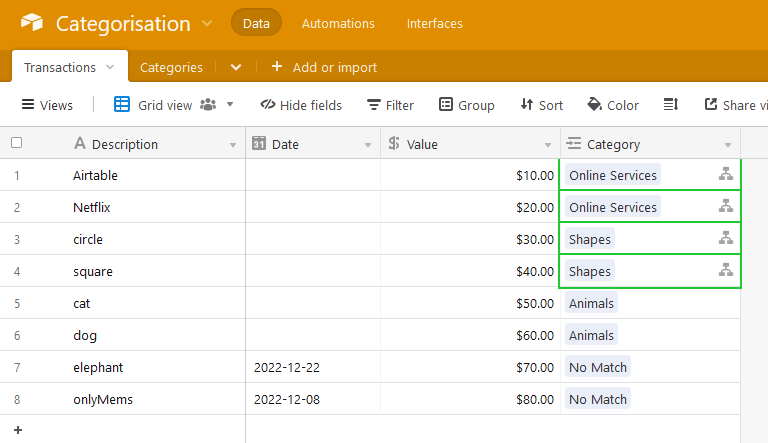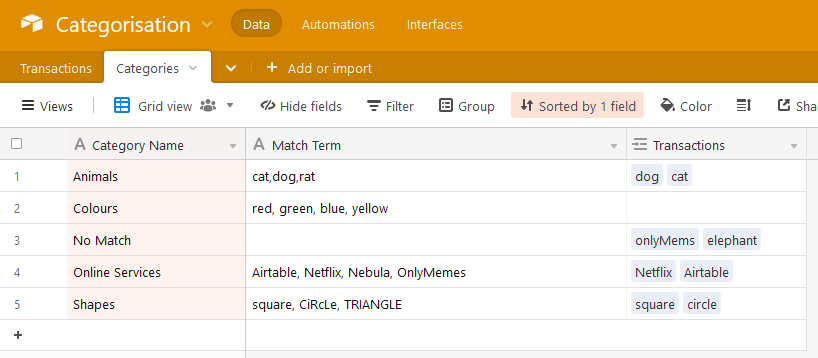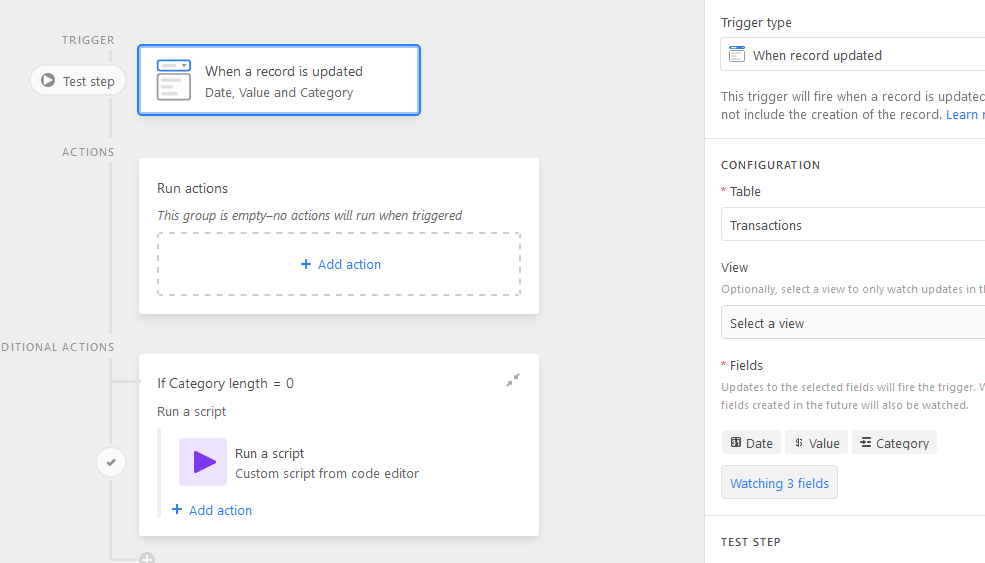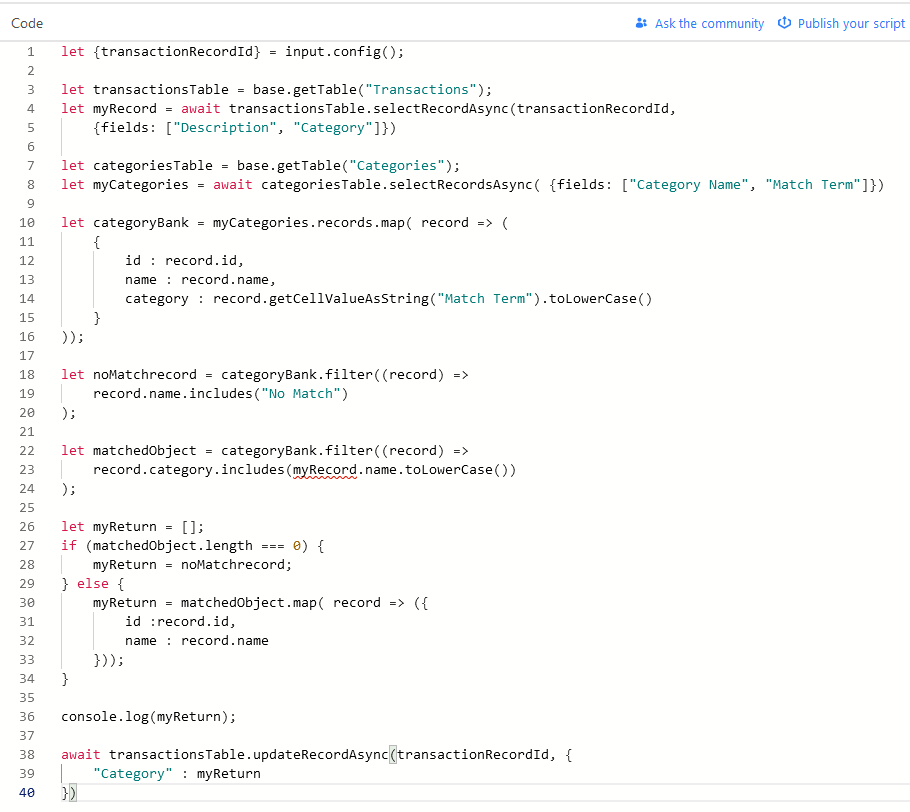HI
I face an auto-categorization issue with no solution so far
I update a table with hundreds of credit card transactions, with lot of them recurring with 95% of the text string similar from a month to another month.
Is there any chance there is a solution that would save me from categorizing 10 times the line 'Airtable' as 'Online Services' , or even better, that categorizing once 'Airtable November 2022' would allow to automatically categorize in the same way 'Airtable December 2022', 'Airtable January 2023', 'Airtable February 2023', etc...?
Many thanks for your help








